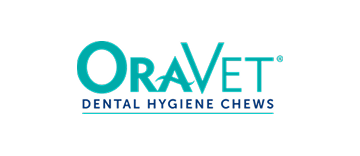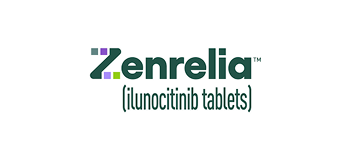As we make New Year’s resolutions to get healthier, it is also important to remember our animal companions.
We have certainly been seeing an increase in chronic disease in our animals in recent years, from chronic immune-mediated diseases of various organs, increased skin/ear allergies, digestive tract disorders, hormonal disorders, and various cancers. Many of these chronic conditions may be prevented or mitigated by incorporating a more holistic lifestyle for our animal companions.
In my opinion, this begins with a healthy, species-appropriate, preferably fresh meat-based diet. As Hippocrates, the father of medicine was quoted. “Let food by thy medicine and medicine thy food.”
Relative to our animals’ diets, nothing could be truer than this Hippocrates quote from long ago.
For many decades and generations of dogs and cats, most of our animal companions have consumed processed dry kibble or canned food devoid of the vibrant energy of fresh foods that is so important for the basis of good health and for the body to be able to heal itself.
Many grocery/pet store brand foods, and even many foods carried by conventional veterinary offices are filled with inferior nutrients from meat by-products to cheaper sources of processed grain as the main protein in the food, as well as inferior preservatives, colorings and dyes, many of which have been linked with the chronic diseases listed above.
When clients make the shift from processed foods to a fresh meat-based diet, the health changes are often dramatic. Emotional well-being, energy and vitality improve; digestion improves in terms of quality of stool and less digestive upset, as well as improved quality coats with significantly less ear infections, hot spots and other chronic, frustrating skin and coat problems plaguing animals today.
If animal guardians decades ago wanted to prepare fresh meat-based or homemade diets, they were on their own, with few resources other than the classic natural healthcare books such as “The Natural Cat” by Anitra Frazier, or “Dr Pitcairn’s Guide to Natural Health for Dogs and Cats” by Richard Pitcairn, DVM, PhD.
Modern times have seen the rise of fresh raw meat-based diets for our animal companions from various companies available locally at pet food outlet stores or from PetMeds®.
Some options include Nature’s Variety and Honest Kitchen name just a couple. For those unable to feed a fresh raw meat diet, many of these companies offer freeze-dried versions, which would be next best option.
Finally, more and more companies are now offering fresh home-cooked diets.
And for those who need top-quality natural commercial diets, there are premium kibbles and wet foods from excellent companies like Halo and Canidae available from PetMeds®.
When making the transition to these higher quality diets, always do so gradually so your animals’ digestive tracts can adjust to the change in nutrients.
However, even with gradual transitions, it is not uncommon for the pet’s chi, or life force to do what holistic veterinarians label as “house-cleaning” or detoxification for a brief period, where discharges through the digestive tract or skin may occur. This does not mean your animal companion can’t handle the new diet, but that there are a lot of internal toxins coming to the surface, which is a good sign to the holistic practitioner.
Over the years there have been more and more supplements and new “wonder products” inundating the market that claim to enhance health and/or longevity. Even experienced veterinarians like myself get confused by the seemingly never-ending plethora of products being promoted from various resources.
But as I have stated during my lectures over many years, my basic supplementation protocol for the average, healthy animal has not changed.
Firstly, I find an excellent quality probiotic/enzyme supplement wonderfully supportive for the gut immune system, which is truly the window to the rest of the body and probably the most important organ system to keep healthy, in order to prevent a “leaky gut.”
Leaky gut may develop in animals that have been on chronic medications such as antibiotics, anti-inflammatory medication, internal pesticides and dewormers.
My second major class of supplements is an excellent quality DHA/omega 3 fatty acid. These wonderful oils help prevent inflammation in various organ systems, and can assist with joint health, heart health, kidney health, cognitive and mental well-being, as well as lessening the tendency to allergic dermatitis.
My final broad category of supplements important to include in a holistic health care regimen is antioxidant nutrients or supplements. As our animals age with the development of chronic degenerative disease, as well with increasing exposure to environmental toxins, chemicals in the body known as free radicals are produced. This leads to a cascade of biochemical reactions in the body often leading to chronic immune-mediated and degenerative disease, as well as being risk factors for cancer.
There are numerous antioxidant anti-inflammatory products out there, including the Proanthocyanidins, Pine Bark extracts, Turmeric or curcumin, to name just a few. We could also add the CBD oil based products this list which also help reduce inflammation and risk of cancer.
Holistic solutions for the new year to keep your pets healthy would not be complete without encouraging animal guardians to seek out holistic practitioners as part of their comprehensive preventative health care plan.
Whether two-legged or four-legged, there is not a mammal walking the planet that would not benefit from chiropractic evaluation of their spines. Subluxations at various spinal cord locations do interfere with nerve impulse transmission and flow and may lead to not only worsening spinal cord disease, but also chronic diseases of other organ systems affected downstream from the this disrupted neural signaling.
Animal guardians can contact the American Veterinary Chiropractor Association for qualified and trained veterinarians in chiropractic care.
Two other wonderful and comprehensive systems of medicine that can help with both prevention and treatment of chronic disease are traditional Chinese medicine/acupuncture and classical homeopathy. The International Veterinary Acupuncture Society, Pitcairn Institute of Homeopathy, the Academy of Veterinary Homeopathy, and the American Holistic Veterinary Medical Association are all excellent resources.
Dr. Michael Dym, VMD











































